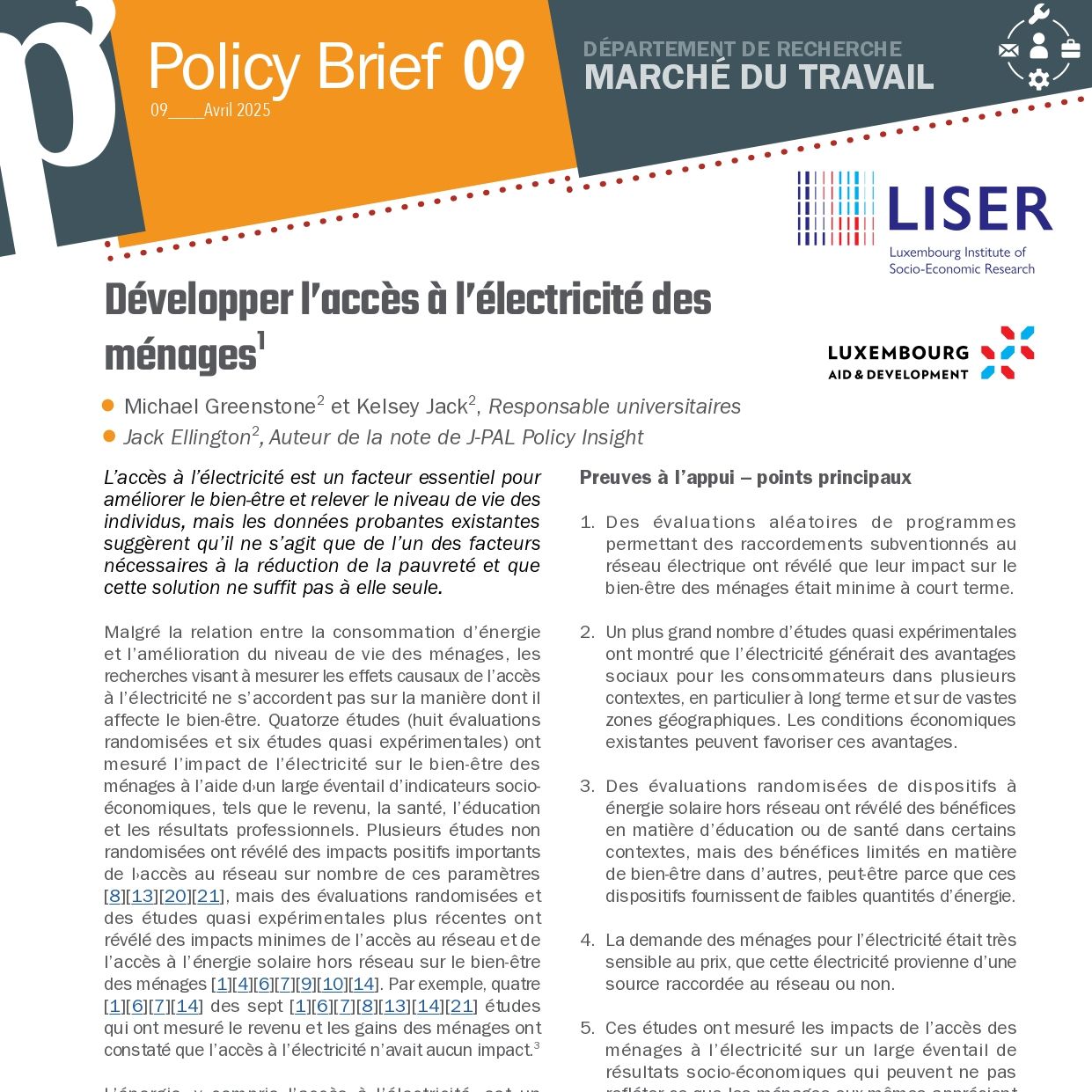Empowering development through impact evaluation and collaboration
The Research Unit on Impact Evaluation of Development Policies – known in French as la Cellule d’analyse d’impact des politiques de développement – was established in June 2022 at the initiative of the Directorate for Development Cooperation and Humanitarian Affairs to provide advisory services to Luxembourgish Cooperation and its implementing agency, Lux-Development.















